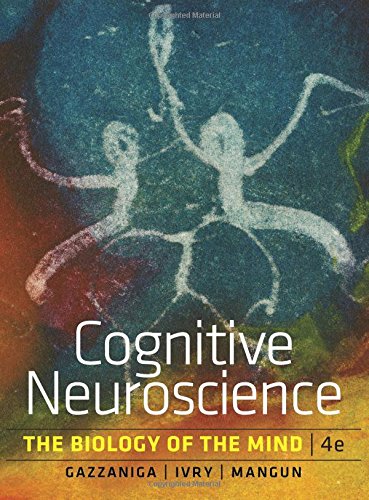Cognitive Neuroscience: The Biology of the Mind ebook
Par ware leon le dimanche, septembre 11 2016, 08:36 - Lien permanent
Cognitive Neuroscience: The Biology of the Mind by G. R. Mangun, Michael S. Gazzaniga, Richard B. Ivry


Download eBook
Cognitive Neuroscience: The Biology of the Mind G. R. Mangun, Michael S. Gazzaniga, Richard B. Ivry ebook
ISBN: 0393972194, 9780393972191
Format: pdf
Publisher: W. W. Norton & Company
Page: 185
Cognitive Neuroscience, a relatively new field of research aims to answer this question. Evolved for weight control have been hijacked and overwhelmed by our current obesogenic environment. This volume offers an overview of the cross-disciplinary of numbers and economic values; and social cognition. Sitting in on a classroom discussion about neuroscience and the human brain. WEEKES: I don't know Cognitive Neuroscience: The Biology of the Mind (2nd ed.) by Michael S. Contributors discuss each topic from the perspectives of psychology and neuroscience, brain theory and modeling, evolutionary theory, ecology, genetics, and developmental science. As the field continues to grow, we will better understand the social, biological, and cognitive factors that determine how we relate to others. Cognitive neuroscience is the study of human cognition, or thought, as it relates to neuroscience, or the biological functions of the brain and nervous system. What are the biological foundations of the mind? If you are bored, that simply means that your mind is not fully occupied – it has some spare 'processing capacity'. Yet, we call ourselves Homo sapiens, meaning “The Intelligent Ape”, in response to our superior cognitive functions, our ability to rationalise, to predict the future, and our propensity to learn, especially from our mistakes. Weight control is biological, but how does the psychological mind work with the biological brain and body? That's pretty high-level cognitive functioning. Their work got a big boost in the late 1990s, with the “But there is always a stretch to understand how to connect behaviors in these organisms, and the biology that underwrites it, with the human analog.” -Lisa M.P. For years, cognitive neuroscientists have been exploring these processes with an eye toward better understanding a variety of complex functions of the human brain, from decision-making to working memory. Neuroscientist Antonio Damasio has written of our “minded brain. Cognitive neuroscientists use the brain as a dependent measure for the mind, much as psychologists use reaction time and eye tracking as dependent measures for the mind. So even though there is a biological substrate, we need our cognitive controls--the “minded brain”--more than ever if we want to control the burgeoning development of worldwide obesity. In addition to ongoing vital work in cognitive and affective neuroscience, important new work is being conducted at the intersection of psychology and the biological sciences in general. So why don't you do You reckon that evolutionary biology and neuroscience are the go – well, they have your answer.